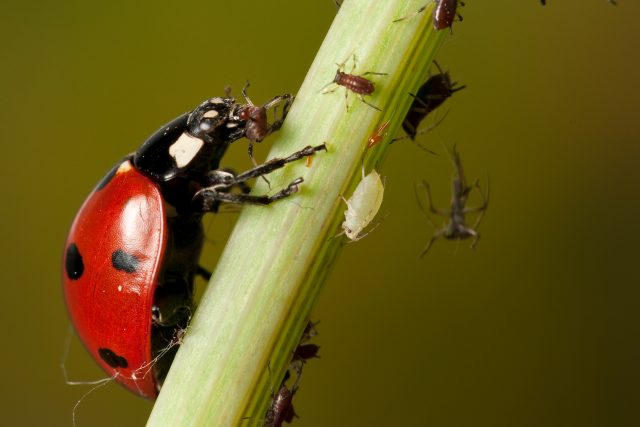This website uses cookies so that we can provide you with the best user experience possible. Cookie information is stored in your browser and performs functions such as recognising you when you return to our website and helping our team to understand which sections of the website you find most interesting and useful.
Cargo Road Wines welcomes predator insects to its vineyards
Australia’s Cargo Road Wines has introduced more than 700,000 insects to its vineyard in a bid to repair the environment and reduce the use of chemicals in winemaking.

Speaking in an interview with ABC, James Sweetapple winemaker at Cargo Road Wines near Orange in New South Wales central west, told reporters how, for the past 26 years he has introduced predator insects such as ladybirds and lacewings to his winery as a way to remove the need for using pesticides.
Instead of using chemicals, Sweetapple revealed how he has planted more than 2,000 native insect plants like watties and rosemaries, which are essential habitats for promoting beneficial bugs and this has helped to protect the vineyard from pests such as the light brown apple moth.
He said: “We aren’t getting bugs and caterpillars in the grapes or the wine. The moth is a particularly bad one because it hides inside the bunch and kills the berries.”
According to Sweetapple: “It’s all about balance. If you use a pesticide, that will kill all the good and bad bugs [but] the bad bugs are going to come back first, so if you go and muck with the ecosystem, you will be left with a disaster.”
Sweetapple insisted that the move towards using predator insects to assist in mitigating pest issues in the vineyard has saved him “time and money” and explained: “You don’t have to buy a drum, can or bottle of something. You don’t have to mix it in your spray vat, put on your protective clothing, and drive your tractor up and down the rows”.
Australian winemakers embracing biodiversity does however coincide with the country facing what has been termed an “insect apocalypse” with populations declining by up to 2.5% a year.
Biodiversity researcher Dr Lizzy Lowe from Cesar Australia, explained that agricultural management methods have historically been a big contributor to the issues that the insect world is facing in terms of decline.
Dr Lowe stated: “Across the world, there is a real decline in insect diversity and the number of species that are out there” but revealed that winemakers promoting predator bugs were being helpful to the environment and the prosperity of certain insect species continuing as well as often being more effective than chemicals in managing pests.
Dr Lowe added: “Bringing biodiversity back into these agricultural systems is a huge benefit not just for the environment but for growing crops as well.”
Related news
Vignobles Cruse-Lorenzetti shuffles roles across its four Bordeaux chateaux
Is Monastrell the climate-adaptable grape the industry needs?
The story of Maison Simonnet-Febvre’s new Chablis Premier Cru Forêts

